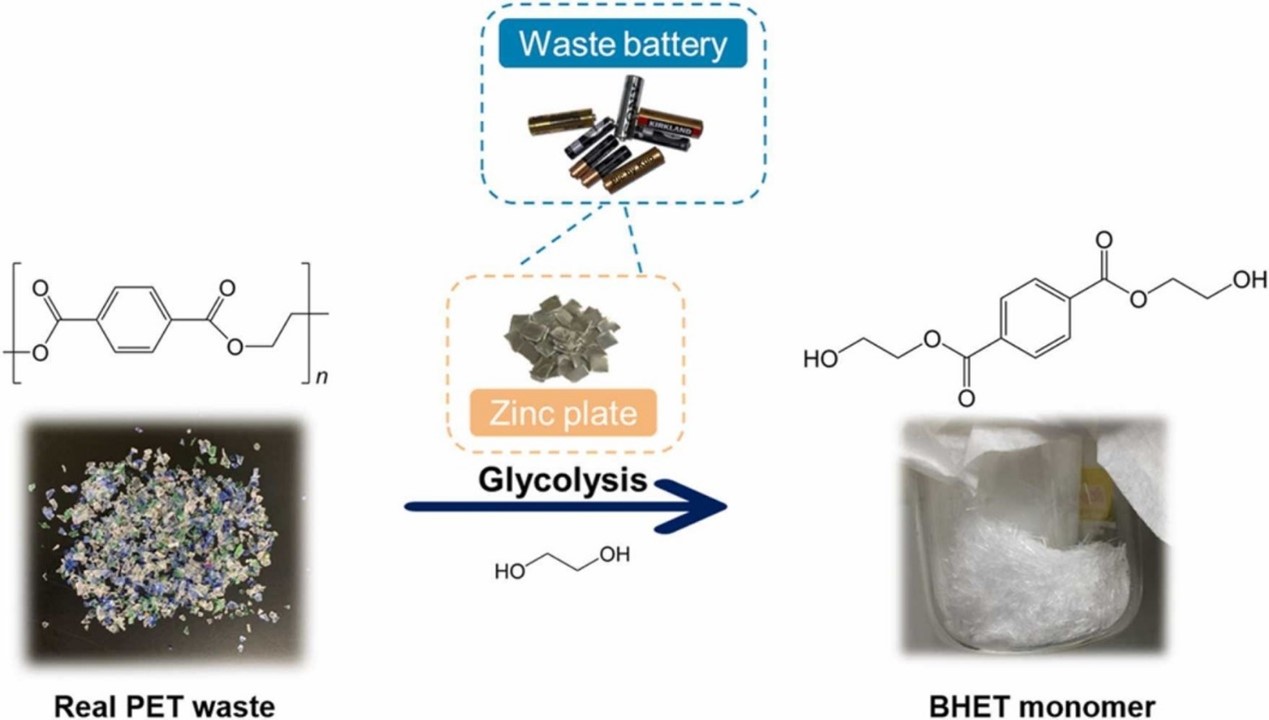

Waste-battery-derived multifunctional zinc catalysts for glycolysis and decolorization of polyethylene terephthalate
Philip Anggo Krisbiantoro (Prof. Kevin C.-W. Wu’s group)
Contributions: Investigation, Data curation, Formal analysis, Writing – review & editing.
In this study, novel and easily recyclable catalysts were prepared from waste batteries for efficient glycolysis and decolorization of polyethylene terephthalate (PET) to obtain bis(2-hydroxyethyl) terephthalate (BHET). At 190 °C and 5 h, the PET conversion and BHET yield reach 89.7 and 77.7%, respectively, which are comparable to the values obtained for the commonly used catalyst zinc acetate. Species generated from the reaction between ethylene glycol (EG) and zinc plates (e.g., Zn-glycolate, ZnO, and other metal species on zinc plates) demonstrate excellent catalytic performance. Furthermore, dye molecules released from several commercial-colored PET bottles during glycolysis can be degraded to colorless molecules using zinc plates, thereby facilitating BHET purification. The exposed zero-valent zinc from the zinc plates in EG is responsible for degrading the dye molecules. Finally, the scaled-up PET glycolysis process is conceptually designed using Aspen Plus software. The simulation results suggest that reducing the energy requirement in distillation is necessary for further improvement.
This work has been published in Applied Catalysis B: Environmental, 2023, 325, 122302.
https://www.sciencedirect.com/science/article/pii/S0926337322012437



